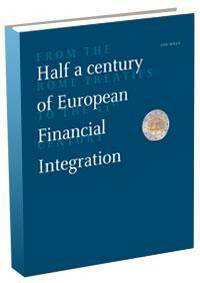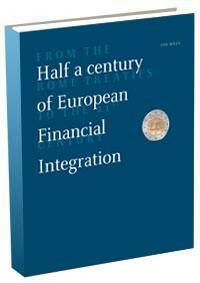
- Afhalen na 1 uur in een winkel met voorraad
- Gratis thuislevering in België vanaf € 30
- Ruim aanbod met 7 miljoen producten
- Afhalen na 1 uur in een winkel met voorraad
- Gratis thuislevering in België vanaf € 30
- Ruim aanbod met 7 miljoen producten
Zoeken
Half a Century of European Integration
From the Rome Treaties to the 21st Century
Ivo Maes
Hardcover | Engels
€ 29,95
+ 59 punten
Omschrijving
When the Treaties of Rome were concluded, the fathers of European integration intended above all to establish the free movement of goods and a common policy in sectors such as agriculture and transport. Financial integration was far from being their main concern. With the creation of the Common Market in the sixties the first - prudent - steps were taken towards financial unification. The turmoil on the exchange markets in the seventies encouraged the European authorities to take more control of the flow of capital. The European Economic Community equipped itself with a fully fledged financial column from 1985 onwards, when a programme for the full liberalisation of goods, services, people and capital was set up. With the Treaty of Maastricht European and monetary union and the creation of a central European bank became definite objectives. The conversion to the Euro in 1999 was the provisional conclusion of a long and exciting process. The introduction of the single currency was also the engine of integration in other sectors of the financial markets, such as bonds or shares. Nonetheless many legal and technical obstacles are yet to be overcome.
In Half a Century of European Financial Integration, Ivo Maes studies the reason why it has been so difficult to set up a unified European financial market, how unification has moved forward and what decisions ...
In Half a Century of European Financial Integration, Ivo Maes studies the reason why it has been so difficult to set up a unified European financial market, how unification has moved forward and what decisions ...
Specificaties
Betrokkenen
- Auteur(s):
- Uitgeverij:
Inhoud
- Aantal bladzijden:
- 128
- Taal:
- Engels
Eigenschappen
- Productcode (EAN):
- 9789061537908
- Verschijningsdatum:
- 20/11/2007
- Uitvoering:
- Hardcover
- Afmetingen:
- 230 mm x 280 mm
- Gewicht:
- 1050 g

Alleen bij Standaard Boekhandel
+ 59 punten op je klantenkaart van Standaard Boekhandel
Beoordelingen
We publiceren alleen reviews die voldoen aan de voorwaarden voor reviews. Bekijk onze voorwaarden voor reviews.








